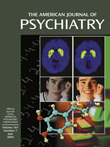I don't know that normal recreational use is damaging to the brain.
In humans they have shown some differences in receptor densities and transporter densities and binding infinity. However, the population of people (age, Sex, weight, prescription, and non-prescription medication, etc) used as controls versus the MDMA users is not comparable, poly drug use other than MDMA was not controlled for, and there are significant differences in the identified metrics across age groups and individual humans.
There is not one study that I'm aware of that can prove axonal damage from recreational doses of MDMA. In fact, this study says that there's no difference between people that aren't using now, but have in the past and naive users. Of course, in active users there will be differences in the serotonergic system of the brain.
"There was no significant difference of serotonin transporter availability among former MDMA users and the drug-naive and polydrug comparison subjects."
OBJECTIVE: Recent functional imaging studies have reported evidence of alterations in the serotonergic system induced by 3,4-methylenedioxymethamphetamine (MDMA), or “Ecstasy.” However, these studies have often been limited by small sample size, lack of tracer selectivity, unreliable assessment...

ajp.psychiatryonline.org
Finally some real science.

